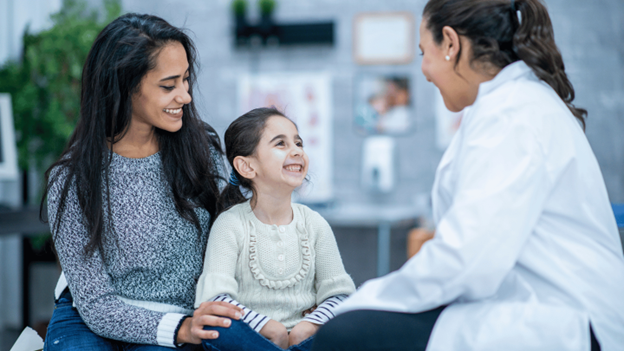
Is mono contagious? How long kids stay infectious and when they can go back to school.
If your child suddenly comes down with a sore throat, fever, and extreme tiredness that just won’t go away, you might start wondering about mononucleosis, more commonly known as mono. Parents often ask the same questions: Is mono contagious? How long will my child be out of school? And when can they safely be around friends again?
Mono is a viral infection that’s very common in teens and young adults, but kids can catch it too. It spreads in ways that may surprise you, and while it’s not usually dangerous, the long recovery and school absences can be stressful for families.
With the right care and guidance, most children bounce back without complications.
How mono spreads: transmission and the “kissing disease” myth.
Mono is caused most often by the Epstein-Barr virus (EBV). Since the virus passes through saliva, it’s earned the nickname “the kissing disease.” But kissing isn’t the only way kids catch it.
Mono can spread when children:
- Share drinks, snacks, or utensils
- Swap lip balm or water bottles
- Come into close contact during play or sports
Mono doesn’t spread as easily as colds or the flu. But because kids often share drinks and play close together, it can easily spread at school.
How long is mono contagious in children?
The tricky part about mono is figuring out how long it’s contagious.
- Highest risk. The first few weeks of illness, when fever, sore throat, and swollen glands are at their worst.
- Ongoing risk. Even after mono symptoms get better, the virus can stay in the saliva for weeks or sometimes months. Some kids may even spread EBV without even showing signs of being sick.
In short, your child is most contagious when symptoms are strong. But it’s definitely possible to pass on the virus after that, too.
Is it safe to be around someone with mono?
For most families, the answer is yes, with some precautions.
Mono spreads mainly through saliva, so everyday casual contact like sitting next to someone or sharing a classroom is usually safe.
What you’ll want to avoid are activities that involve direct saliva exchange, like sharing drinks, food, utensils, lip balm, or toothbrushes.
It’s also worth remembering that people with mono can stay contagious for weeks after their symptoms improve.
That means your child might feel better but still be able to pass the virus along. Encouraging good hygiene (like handwashing and not sharing personal items) goes a long way in protecting siblings and friends.
When can my child return to school after mono?
Most kids with mono miss about a week of school, sometimes longer if fatigue lingers.
The decision to return depends on two things: how your child feels and the kind of activities they’ll be doing.
- Back to class. Once the fever is gone and energy is improving, kids can usually go back, even if they’re still a bit tired.
- Sports and physical activity. This requires more caution. Mono can make your child’s spleen swollen, which means it could get hurt more easily. Because of this, doctors often recommend avoiding contact sports or strenuous exercise for 3-4 weeks.
- Infectious risk. By the time your child is ready for school again, they’re much less contagious, but it’s still smart to avoid sharing water bottles, snacks, or utensils.
When to visit CityMD for mono testing and care.
Mono can be frustrating for kids and parents alike, but with the right care, most children recover fully and get back to their normal routine. Knowing how mono spreads, how long it’s contagious, and when it’s safe to return to school helps you protect your child and their classmates.
At CityMD, our doctors are here to make the process easier. We can test for mono, monitor recovery, and provide the notes schools and sports teams often require. With walk-in availability and extended hours at locations near you, your child can get the care they need without delay, so you can focus on helping them rest and heal.

We’re ready to care for you.
Visit any CityMD urgent care location in your community today for an evaluation with one of our expert providers.